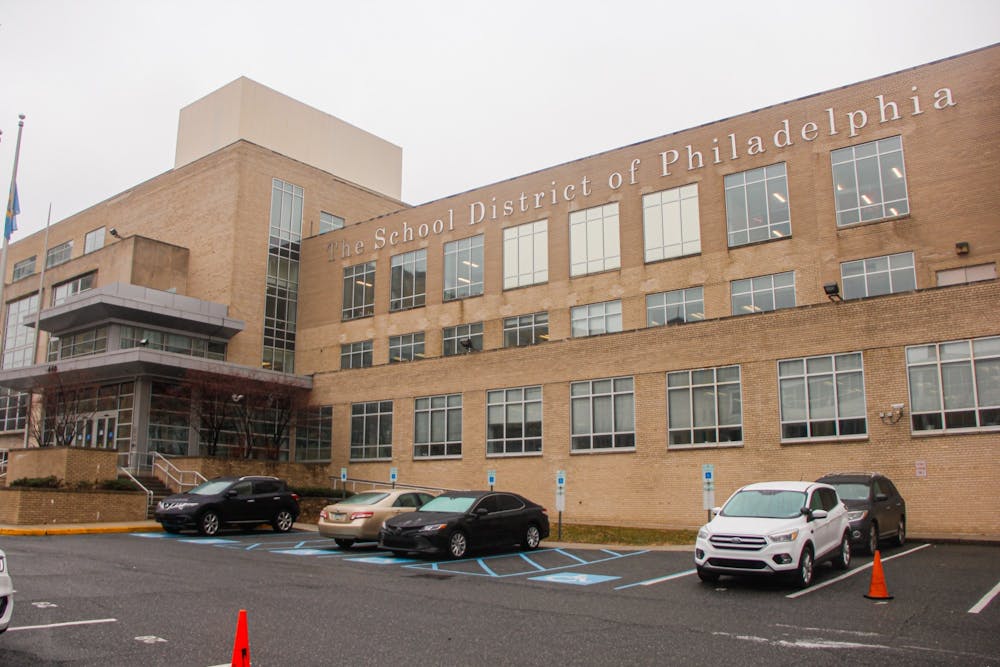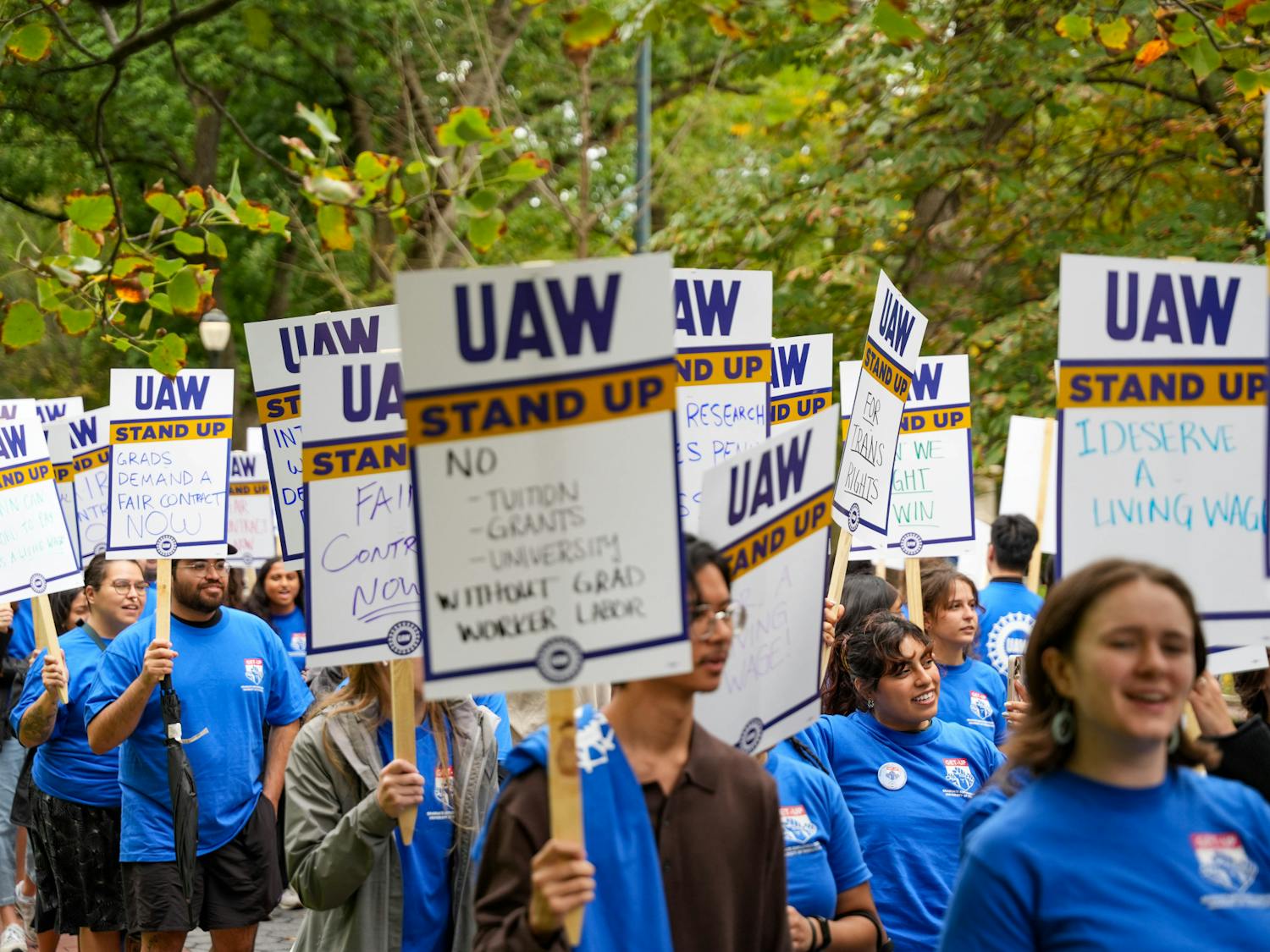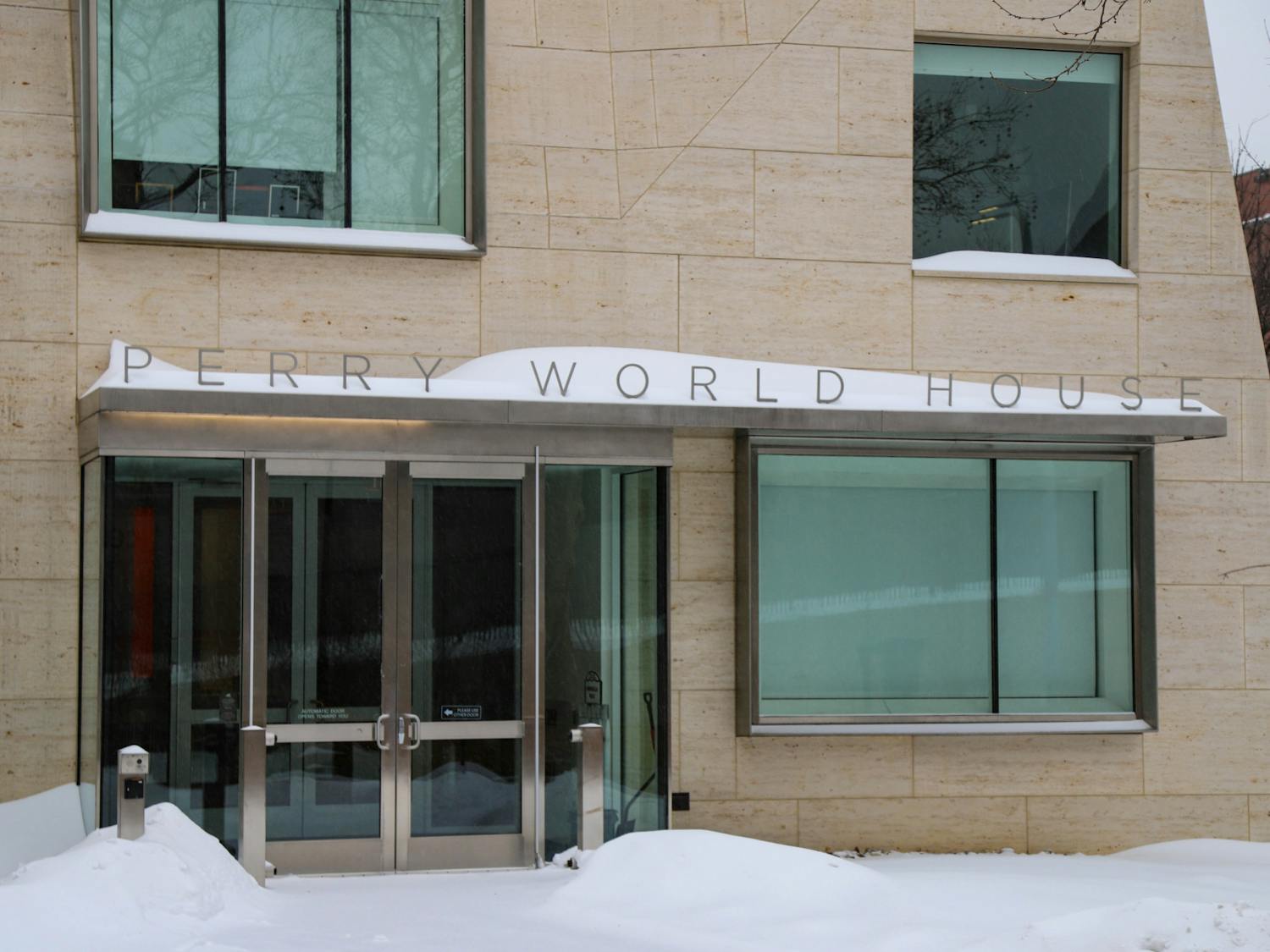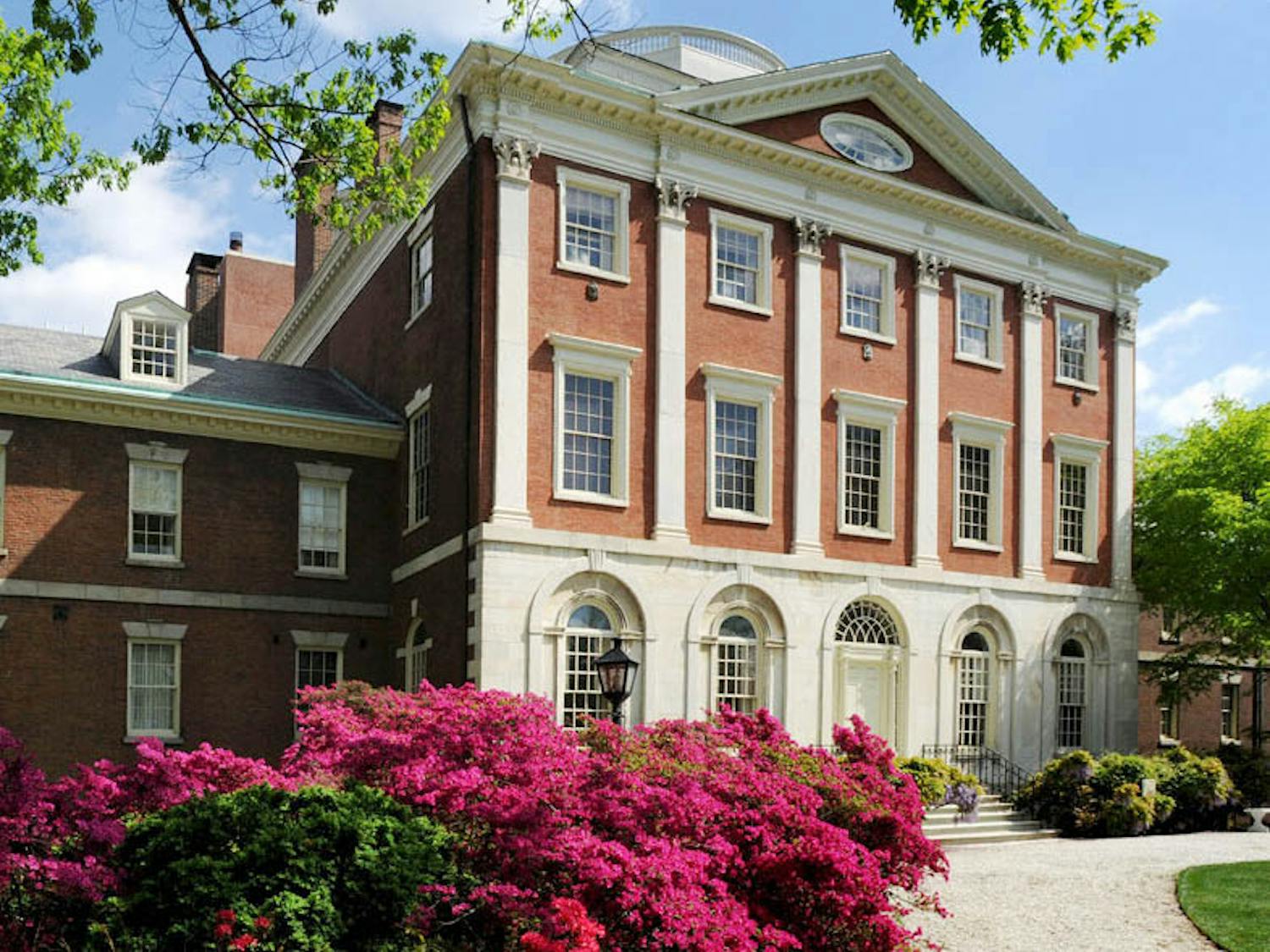Penn professors and parents expressed frustration with the Philadelphia School District's effort to address recent issues of asbestos, which involves a $100 million dollar grant from Penn.
Since the beginning of 2023, four Philadelphia public schools have closed due to asbestos: Simon Gratz High School, Building 21, Frankford High, and Mitchell Elementary, according to the Philadelphia Inquirer. While Simon Gratz reopened after about a week, the other three face longer suspensions with indeterminate end dates.
This issue arises after Penn pledged to give the school district $10 million a year over 10 years, totaling a $100 million grant in 2020. This money goes towards addressing environmental hazards, including asbestos, contaminated water, and lead in the schools. Although Penn provides the money, the school district has complete discretion over its allocation.
According to a press release from Superintendent Tony B. Watlington, the district has 295 at-risk buildings, which were built when asbestos was commonly used in construction.
This poses a significant health and safety issue for school district faculty and students — short-term asbestos exposure is linked to respiratory problems like asthma, and prolonged exposure can lead to potentially fatal consequences. In 2019, a Philly teacher was diagnosed with mesothelioma, a deadly form of lung cancer.
“With decades of underfunding, the District has had to balance insufficient resources to work on our facilities and the need to deliver pressing educational services,” Wallington wrote in the press release.
The $100 million pledge comes after the University has faced widespread criticism from both students and faculty for its refusal to make Payments in Lieu of Taxes, known as PILOTs, to the city of Philadelphia. As a nonprofit institution, Penn is exempt from paying property taxes to the city. But universities often voluntarily pay PILOTs to support public services, like school systems.
According to Jeffrey Cooper, the Vice President for Government and Community Affairs at Penn, this money represents Penn’s longstanding commitment to supporting the school district and the greater Philadelphia community.
RELATED:
Penn’s $4.1 million partnership with local school leads to new hires, gentrification concerns
Court declares need to reform Pennsylvania's public school funding system
“Penn is deeply engaged with the school district,” Cooper said. “We are always in communication, we listen to their needs, and we respond to opportunities to be of assistance.”
Akira Rodriguez, an Assistant Professor at Penn’s Department of City and Regional Planning in the Stuart Weitzman School of Design, feels differently. Although she supports Penn’s involvement with the school district, she thinks they have a responsibility to do more — especially because the University is exempt from property taxes.
“The school district has $5 billion in deferred maintenance, and $100 million is not going to do much for that,” she said. “[Penn has] a moral obligation to be a good neighbor and good citizen of the city.”
As a scholar of urban planning, Rodriguez said she is particularly worried about the long-term effects of asbestos on inequities in the school district, calling the deterioration of schools a “self-fulfilling prophecy.” She added that schools with the worst physical conditions have the lowest performance levels and attendance rates, causing parents to withdraw their students and faculty to relocate. This leads people to condemn the school, and disinvest, exacerbating the funding issue.
Furthermore, Rodriguez expressed disapproval of the lack of standardization in the district’s asbestos documentation.
Her efforts to collaborate with the district and lend her professional expertise have also been unsuccessful. Rodriguez told The Daily Pennsylvanian that she has tried repeatedly to attend the Facilities and Environmental Advisory Committee, which reserves two spots for Penn faculty, but her emails “go ignored.”
“It’s very difficult to partner with the district on this topic,” Rodriguez said. “I attribute that mainly to the fact that the district is really understaffed, and not an intentional stonewalling.”
South Philly parent Laurie Mazer echoed these concerns. Mazer has two elementary school students at the Fanny Jackson Coppin School, and she became involved in advocacy work when she learned about the risks of lead paint and plaster in her children's learning environment.
Mazer works with the Philly Healthy Schools Initiative and Parents United for Public Education, two independent parent and stakeholder-led advocacy groups. Initially, she said she felt optimistic about the district’s response to her concern. Along with other parents and several faculty unions, she formed an advisory committee which collaborated with the district to reform policies around toxic chemicals.
One of her biggest concerns is the inability of parents to access data about the presence of toxic chemicals in their childrens’ schools and the allocation of funding for its removal.
“It doesn’t feel like information that should be hidden,” she said. “I don’t know why it’s considered sensitive. All I want is for things to get better.”









